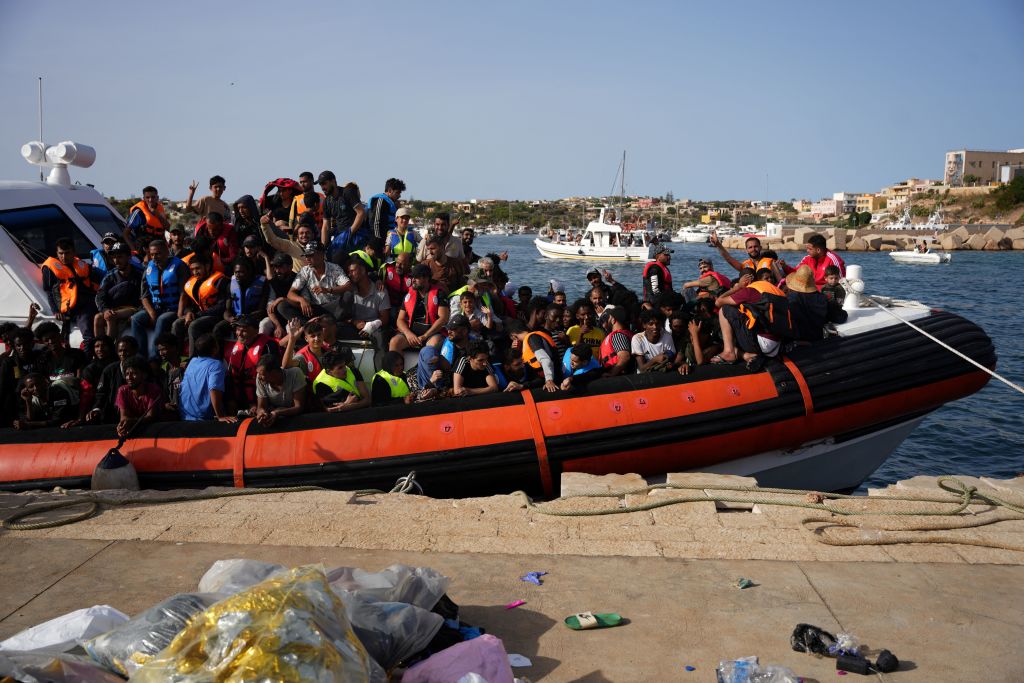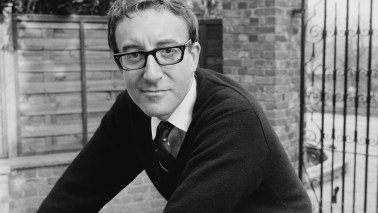It has been a bloody April in France. Last week a 13-year-old girl of Algerian origin was beaten unconscious, allegedly by her classmates, for dressing ‘like a European’.
Two days later a 15-year-old boy, Shamseddine, was beaten to death by a group of youths in what the police believe was an ‘honour killing’. The victim and a girl in his class had reportedly exchanged text messages; these messages came to the attention of the girl’s elder brothers, who allegedly attacked Shamseddine to salvage the family’s ‘reputation’.
The objective of the Pact is to better manage migrants once they have reached Europe
On Wednesday evening a man was stabbed to death and another seriously wounded in Bordeaux. According to reports this morning, the victims and attacker were of North African origin, with the attacker, dressed in a djellaba, reportedly enraged by the sight of two his compatriots drinking alcohol to celebrate the end of Ramadan.
Politically, no one is benefiting more from the violence sweeping France than Jordan Bardella, president of the National Rally, and the party’s principal candidate in June’s European Elections. The latest opinion poll has Bardella on 32 per cent, 13 points more than Valerie Hayer, the candidate for Emmanuel Macron’s Renaissance party. Third are the Socialists, currently polling at 11 per cent.
Jérôme Fourquet, France’s top political pollster, described Bardella’s score as remarkable, saying that it was very rare to break the 30 per cent threshold. Not since Simone Veil polled over 40 per cent in the 1984 election has a French politician dominated the opposition in this way.
Three issues explain the popularity of the 28-year-old Bardella and his party: the cost of living crisis, immigration and insecurity.
Immigration and insecurity are closely linked, not just in France but throughout Europe. They explain the rise of right-wing parties in recent years, from Sweden to Portugal and from Holland to Greece.
Consequently, the EU itself is under threat in June’s elections. Its two main groups, the European People’s Party (EPP) and the Progressive Alliance of Socialists and Democrats, fear that their centrist dominance will be challenged by the rise of the right-wing Identity and Democracy, a group which includes the National Rally, Matteo Salvini’s Lega, Geert Wilders’ Party for Freedom, Germany’s AfD, Austria’s Freedom Party and Chega, the new force in Portuguese politics.
The EPP, to which Ursula von der Leyen, the president of the European Commission belongs, claims to be centre-right but, like the Tories, they are really progressives disguised as conservatives. Under their rule, Europe has experienced wave after wave of immigration from Africa and the Middle East.
Despite repeated promises to stem the arrivals – which last year numbered more than 380,000 irregular crossings, a seven-year high – migrants continue to land on European soil. Last weekend a fleet of small boats containing 1,500 migrants arrived on the Italian island of Lampedusa.
In an attempt to address the issue, the EU formulated last December what it called the New Pact on Migration and Asylum. Yesterday the European Parliament endorsed the pact by 322 votes to 266. Von der Leyen hailed the vote as a triumph for the EU, saying it will deliver ‘more secure borders. Faster, more efficient procedures. And more solidarity with Member States at external borders.’
The 266 MEPs who voted against the Pact did so for vastly different reasons. Left-wing politicians regard the pact as too regressive while those on the right consider it too lax. In the latter’s view there is only one solution to mass immigration: stop the boats reaching Europe.
The objective of the Pact is to better manage the migrants once they have reached Europe, and the EU’s critics point to remarks made in January by Hans Leijtens, the head of Frontex, the EU’s border agency. ‘This talk of “stopping people” and “closing borders” cannot be our narrative all the time,’ he said. ‘Nothing can stop people from crossing a border, not a wall, not a fence, not a sea, not a river.’ For that reason, explained the Dutchman, the job of Frontex was to ‘strike a balance between effective border management and respect for fundamental rights.’
Leijtens’ predecessor at Frontex was Frenchman Fabrice Leggeri. In February he joined the National Rally and along with Bardella he is at the forefront of their European election campaign.
Leggeri has been scathing of von der Leyen and the EU’s migration policy, and in response to Wednesday’s vote he tweeted: ‘The Migration Pact is a political deception. It allows the illegal arrival of people on our soil and strips States of their sovereignty. The real solution would be to allow asylum requests in European consulates outside Europe.’
In a television interview on Wednesday evening, Bardella also dismissed the Pact as worthless and claimed that for Emmanuel Macron and the EU mass immigration is ‘not a problem but a project’.
Bardella’s party and other right-wing parties in Europe believe that European civilisation is under threat from mass immigration. In their view unless it is drastically reduced honour killings and modesty beating will become the norm in the decades ahead.








Comments